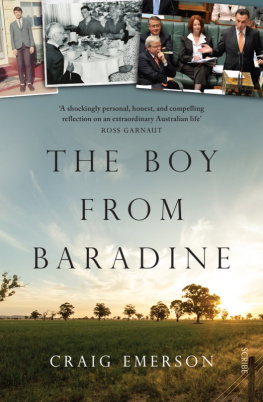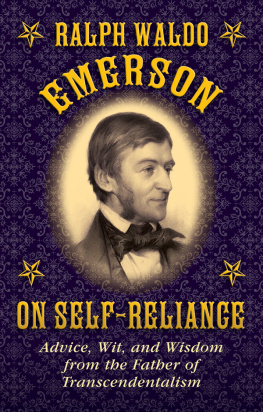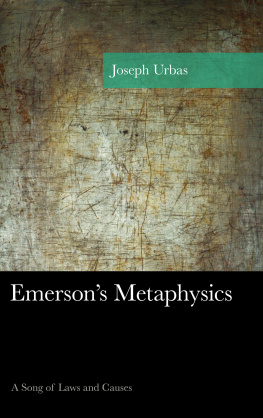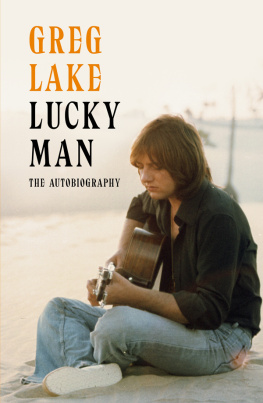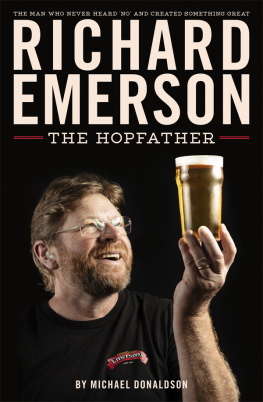Craig Emerson - The Boy from Baradine
Here you can read online Craig Emerson - The Boy from Baradine full text of the book (entire story) in english for free. Download pdf and epub, get meaning, cover and reviews about this ebook. year: 2018, publisher: Scribe Publications, genre: Detective and thriller. Description of the work, (preface) as well as reviews are available. Best literature library LitArk.com created for fans of good reading and offers a wide selection of genres:
Romance novel
Science fiction
Adventure
Detective
Science
History
Home and family
Prose
Art
Politics
Computer
Non-fiction
Religion
Business
Children
Humor
Choose a favorite category and find really read worthwhile books. Enjoy immersion in the world of imagination, feel the emotions of the characters or learn something new for yourself, make an fascinating discovery.
- Book:The Boy from Baradine
- Author:
- Publisher:Scribe Publications
- Genre:
- Year:2018
- Rating:4 / 5
- Favourites:Add to favourites
- Your mark:
- 80
- 1
- 2
- 3
- 4
- 5
The Boy from Baradine: summary, description and annotation
We offer to read an annotation, description, summary or preface (depends on what the author of the book "The Boy from Baradine" wrote himself). If you haven't found the necessary information about the book — write in the comments, we will try to find it.
The Boy from Baradine — read online for free the complete book (whole text) full work
Below is the text of the book, divided by pages. System saving the place of the last page read, allows you to conveniently read the book "The Boy from Baradine" online for free, without having to search again every time where you left off. Put a bookmark, and you can go to the page where you finished reading at any time.
Font size:
Interval:
Bookmark:

THE BOY FROM BARADINE
Craig Emerson is an eminent economist, and holds a doctorate from the Australian National University. He was economic and environmental adviser to prime minister Bob Hawke, and a minister in the Rudd and Gillard governments, where he held the portfolios of trade, tertiary education, competition policy, small business, and minister assisting the prime minister on Asian Century policy. Before entering parliament, he was director-general of the Queensland environment department, and, at the age of 23, the youngest economic analyst at the United Nations in Bangkok. He has published extensively in economic journals and on newspaper opinion pages, and is now the managing director of his own economic consultancy, Craig Emerson Economics.
Scribe Publications
1820 Edward St, Brunswick, Victoria 3056, Australia
2 John St, Clerkenwell, London, WC1N 2ES, United Kingdom
First published by Scribe 2018
Copyright Craig Emerson 2018
All rights reserved. Without limiting the rights under copyright reserved above, no part of this publication may be reproduced, stored in or introduced into a retrieval system, or transmitted, in any form or by any means (electronic, mechanical, photocopying, recording or otherwise) without the prior written permission of the publishers of this book.
ISBN 9781925322590 (Australian edition)
ISBN 9781925548877 (e-book)
A CiP entry for this title is available from the National Library of Australia
scribepublications.com.au
scribepublications.co.uk
To Ben, Tom, and Laura, our three miracles
CONTENTS
Mother, rows, and refuges
Pud! Pud! My fathers anxious cry reached through the rustling of the gum leaves into my dreams from the top of the far creek bank. As I lay on the underfelt we had used to make the second floor of our tree house homely, I was jarred from my sleep, knowing something terrible had happened to bring Dad three kilometres out of town in the dead of night.
What? I bellowed back, startled by the emergency, but angry at the reason Id had to sleep away from our house, perched high in the sprawling gum tree. As dark clouds raced past the luminous moon, the tree house was a scary refuge for a 15-year-old, but safer than the torment of life at home.
Mums tried to knock herself off! Dad shouted, the wind and the rustling of the leaves muffling his words. Theyve taken her to the hospital and theyre pumping her stomach out. Youd better come.
As a self-conscious adolescent, I had to contemplate, yet again, the prospect of my mother dying from an overdose of sleeping pills. My reservoir of concern for her wellbeing had long been depleted. I thought only of the embarrassment, in such a small country town as Baradine, of being a kid whose mother had killed herself. Servicing wheat farms and forestry operations in the Pilliga Scrub of north-west New South Wales, Baradine was a rumour mill, like any other small country town. Gossip spread faster than the summer bushfires.
Our little town, populated by 900 hardy people in 1970, derived its name from local Aboriginal people who had reportedly told the European settlers who proclaimed it a village in 1865 that Baradine was their word for red wallaby. Near Coonabarabran, not too far from Narrabri, but a hefty 530 kilometres from Sydney, Baradine was dead flat, its streets criss-crossing the sandy soil favoured by the cypress-pine trees that offered so many of the townspeople a living.
Most houses were built of fibro, their corrugated-iron roofs searing hot in summer, but providing a wonderfully deafening receptacle for the unreliable rains when they intermittently relieved the anxieties of the local wheat and sheep farmers. We could smell the rains on their descent through the crackling heat, well before hearing them crash onto the roofs. In the depths of winter, the water pipes froze and our toes ached with the cold until we did a mid-morning gallop around the school grounds during play-lunch time.
In its heyday, Baradine was serviced by the Mudgee Mail passenger railway from Sydney, terminating at the even smaller town of Gwabegar in the heart of the Pilliga Scrub, which is the largest area of continuous forest west of the Great Dividing Range, and was once the location of a dozen sawmills that, like the rail service, are now closed.
Baradine had a doctors surgery, a bank, two cafs, two general stores, two barbers, two butchers, two churches, and five licensed premises. As in most country towns, Baradines spirit resided in the Memorial Hall, a place of gathering for school assemblies and award nights, dances, and, above all, remembrance of the towns residents and nearby farmers who had enlisted for war, one of whom was my father.
Along the towns edge flowed the Baradine Creek from time to time. Mostly it was a series of waterholes, sometimes a trickle, and occasionally a raging torrent when the storm clouds burst over the Warrumbungle Mountains. It was those torrents that carved a gully a couple of hundred metres wide, home to silky oaks and the occasional eucalypt.
Building the three-storey tree house on the banks of Baradine Creek had been a marvellous adventure. Three friends Bryn Bimbo Kelly, Russell Rusty Patterson, and Stan The Man Forrest had the idea, walking along the creek way past the town in search of a suitable tree. Near the long-closed aerodrome, they came upon a sprawling eucalyptus tree, its trunk dividing into three strong branches that formed a cradle into which a tree house could nestle.
Bryn excelled in woodwork at school and, a year older than us, had already begun growing facial hair. Dubbed The Bearded Carpenter, Bryn cut down nearby cypress-pine trees and, with Rusty, sawed them into beams that became the frame of the tree house. By the time they had invited me to join them, they had erected beams for the three storeys and begun adding cypress-pine walls and floors. They had also built the basic structure of a 50-metre bridge across the creek. My job was to finish the walls, add the footway of the bridge, and build a freestanding toilet.
We couldnt afford to buy the floorboards, so I salvaged the offcuts that were left out for burning at the sawmill operating midway between the tree house and the town. These I strapped onto my billy cart, which I pulled from the sawmill to the tree house.
After months of labouring, we had a completed tree house. On the first-floor landing at the top of the ladder from the ground, I installed a shower. Having added guttering around the third-floor corrugated-iron roof, as well as plumbing from a drum I brought from town to catch and store rainwater, we had an acceptable source of shower water.
A second ladder led through a trapdoor into the middle floor, which I covered with green underfelt that I had scrounged from a disused shop near the main street. On this second floor we had built a window, enabling a clear view of the opposite bank and the bridge across the creek. Extending from this floor was a balcony looking out along the creek. Stairs from the second floor led to the top floor, a large area in which I installed a kerosene stove I had purchased from the department store, Permewans, where Dad worked as hardware department manager.
The whole town had come to know of this great enterprise. Mates slept at the tree house with us. I shot and cooked a topknot pigeon on the kerosene stove. I learned the folly of crawling out along a branch with a broomstick to dislodge a wasps nest; wasps fly much faster than boys crawl backwards.
Having completed the walls of the pit toilet, I brought over our Victa lawnmower to cut through the long grass. I listened on my new transistor radio to Neil Diamond singing Sweet Caroline, Ronnie Burns singing Smiley, which was about the Vietnam War to which some of the older boys in Baradine had been conscripted, to Blue Mink calling for racial harmony in a global Melting Pot, to the Hollies assuring us He Aint Heavy, Hes My Brother, and to a wild heavy-metal band called Led Zeppelin blasting out a Whole Lotta Love. Simon and Garfunkel had built A Bridge Over Troubled Water, and so, it felt, had I to escape the trouble in our fibro house.
Next pageFont size:
Interval:
Bookmark:
Similar books «The Boy from Baradine»
Look at similar books to The Boy from Baradine. We have selected literature similar in name and meaning in the hope of providing readers with more options to find new, interesting, not yet read works.
Discussion, reviews of the book The Boy from Baradine and just readers' own opinions. Leave your comments, write what you think about the work, its meaning or the main characters. Specify what exactly you liked and what you didn't like, and why you think so.

